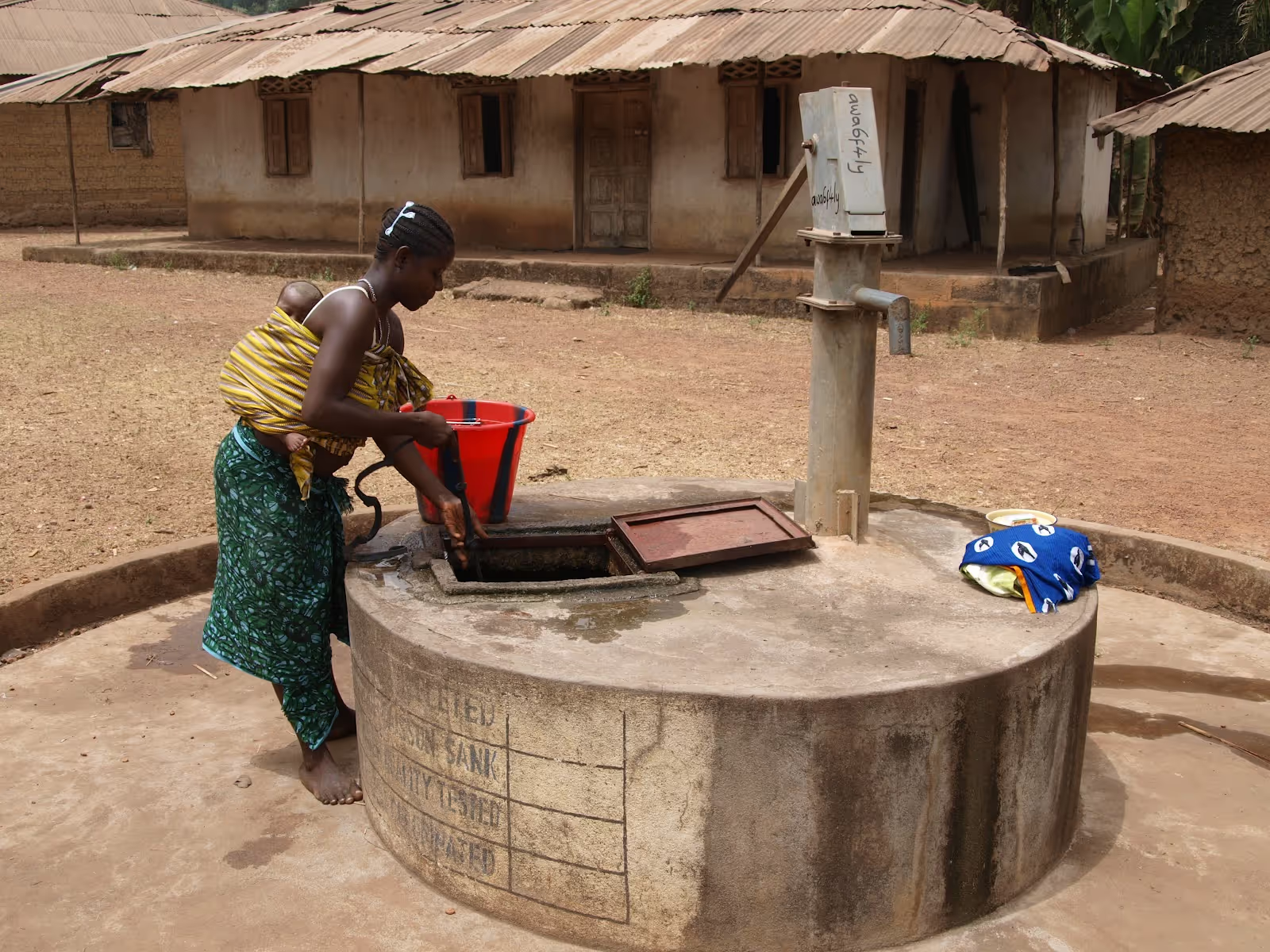Innovation in Post-Conflict Water Supply Projects in Sierra Leone

Project overview
This project will develop an innovative methodology for analysing the impact of post-conflict water supply systems installed in Tonkolili district in Sierra Leone.
Project solution
This project offers [specific solution or intervention] to tackle [challenge]. By implementing [strategies, tools, or innovations], the project aims to achieve [desired outcomes]. The approach is designed to [specific actions or methods] to bring about meaningful change in [community, region, or issue area].
Expected outcomes
This project aims to achieve [specific outcomes], such as [measurable results, improvements, or changes]. The expected impact includes [benefits to the target community, advancements in research or innovation, or long-term effects]. By the end of the project, we anticipate [specific changes or milestones] that will contribute to [broader goals or objectives].
WHAT IS THE HUMANITARIAN NEED?
Challenge(s) addressed:
- Water supply projects installed in the immediate aftermath of disasters are highly susceptible to both failure and slippage (reversion back to previous practices).
- Methodologies for understanding and analysing the impact of these water supply interventions, which considers both the technical (hardware) and non-technical (software) issues are limited and insufficiently indicate the cause of the problems.
WHAT IS THE INNOVATIVE SOLUTION?
Development of a methodology which allows for the post-conflict systems to be fully analysed by combining traditional surveying methods, such as Knowledge, Attitudes and Practices (KAP) surveys, with quantitative technical tools, such as Case Based Reasoning (CBR).
Added Value:
The University of Edinburgh and Concern Worldwide will work together to develop a methodology for analysing existing water supply systems. This will be used to highlight important innovations and alterations that could be made to traditional engineering practice in post-disaster interventions. The resulting research findings will be widely shared with the international humanitarian community. The methodology will be particularly beneficial for analysing any technical intervention, such as sanitation, shelter or energy technologies, carried out in post-disaster situations.
Innovation Phases Description:
- Recognition: Develop an understanding of prior water supply projects by identifying, documenting and critically evaluating existing practices. Explore the need for a more holistic analysis of the socio-technical systems in Sierra Leone and the beneficiaries ability to respond to technical interventions.
- Invention: Creation of a survey mechanism, which will combine both qualitative and quantitative methods, to provide an understanding of the impact that technological interventions have in this context.
WHAT ARE THE EXPECTED OUTCOMES?
- Overview of current research and literature on failure of water supply projects in developing countries, particularly as is relevant to post-disaster interventions.
- A developed methodology for analysing, in an effective and accurate manner, the impact that previous water supply projects have had, their potential for failure, and the reasons behind the systems that have failed.
Project delivery & updates
Stay up to date with the latest developments from this project. Here, you will find details on what has been delivered, resources created, and regular updates as the project progresses. Access key documents, reports, and other materials to see how the project is making an impact.
